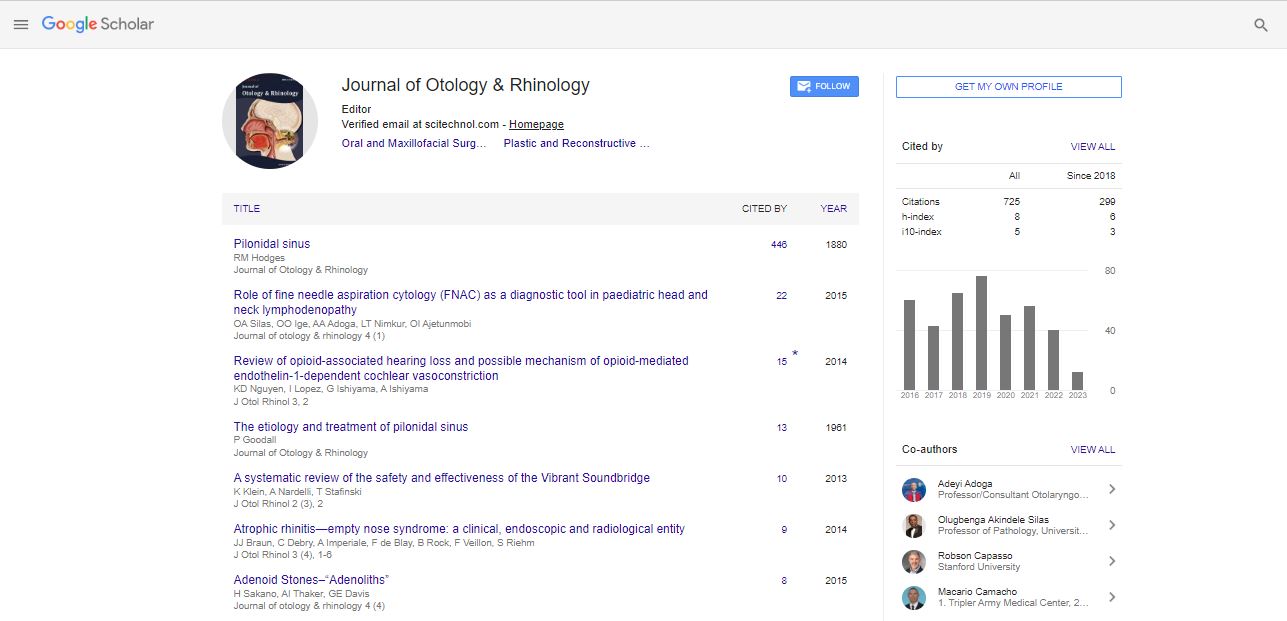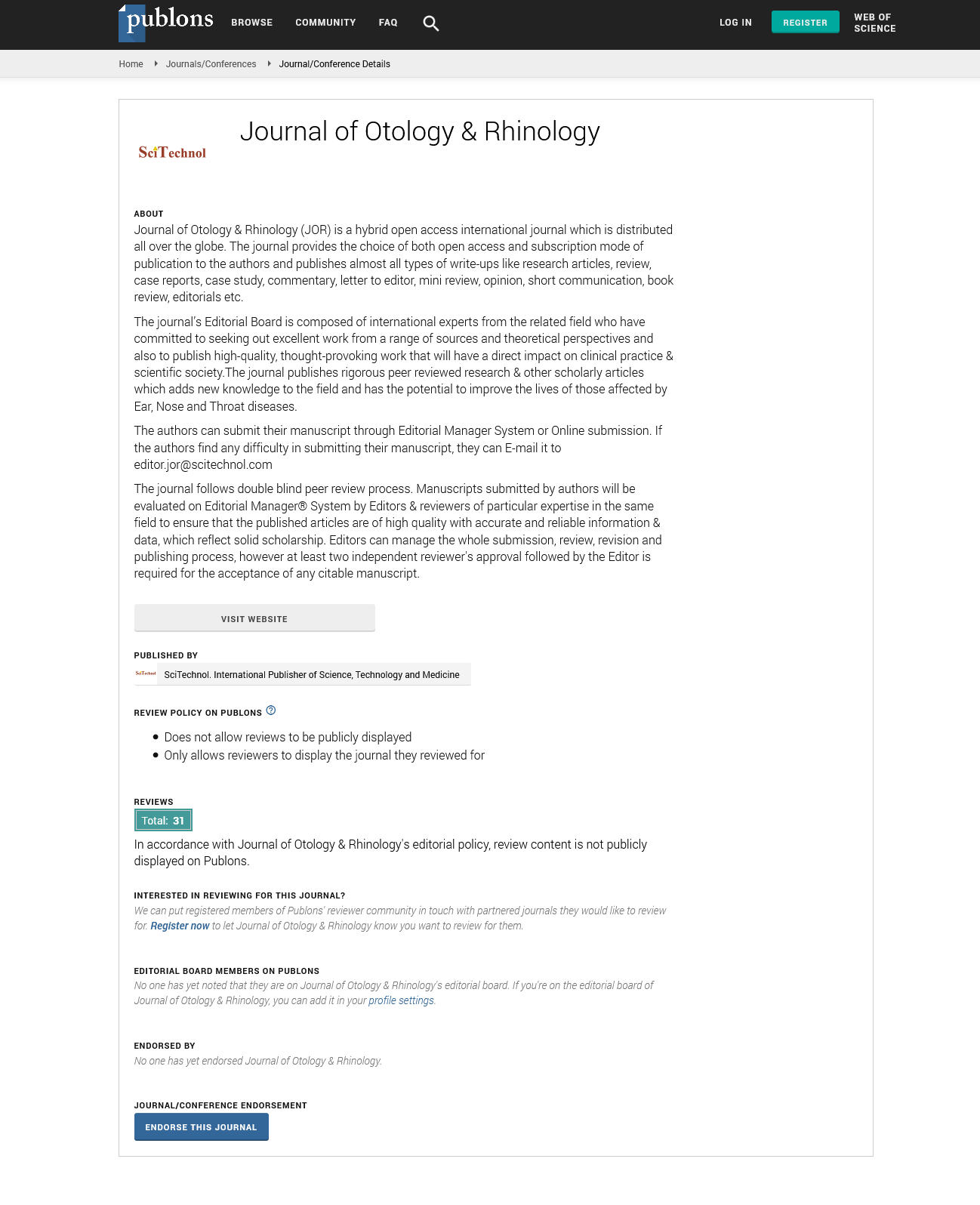Responses from a supplemental question used in otolaryngology residency applications
Jeong Mi Park and Walter T Lee
Gwangju Veterans Hospital, South Korea
Duke University Medical Center, USA
: J Otol Rhinol
Abstract
Objective: To categorize and analyze applicant responses to a supplemental question used during the applicant selection process and; to assess the incidence of leadership training as an element in applicant response over three match cycles Study Design: A qualitative retrospective review of applicant responses to a supplemental question during 2012, 2013, and 2014 match cycles. Setting: Academic otolaryngology residency training program. Subjects & Methods: Responses to a supplemental question were analyzed and specific elements were categorized. The frequency of each reason was assessed by match cycle and gender. Chi-square test was performed on the proportion of responses containing leadership related elements by year and gender. Statistical significance was defined as p-value <0.05. Results: Of the 592 responses that were analyzed, 394 were males and 194 were females. 3 applicants' gender could not be identified with available ERAS data. The most often cited reasons for applying were researched opportunities (69%), education and training (57%), leadership program (48%), comprehensiveness of subspecialties (36%), reputation (25%), and location (17%). There was a statistically significant difference in the proportion of leadership program in each of the three years (p≤0.01). Conclusions: We describe the use of a supplemental application question during the residency match cycle designed to help select applicants for an interview that would best fit with our program focused on leadership. We hope this will stimulate consideration of how to improve the fit of applicants to otolaryngology residency programs.
 Spanish
Spanish  Chinese
Chinese  Russian
Russian  German
German  French
French  Japanese
Japanese  Portuguese
Portuguese  Hindi
Hindi 


